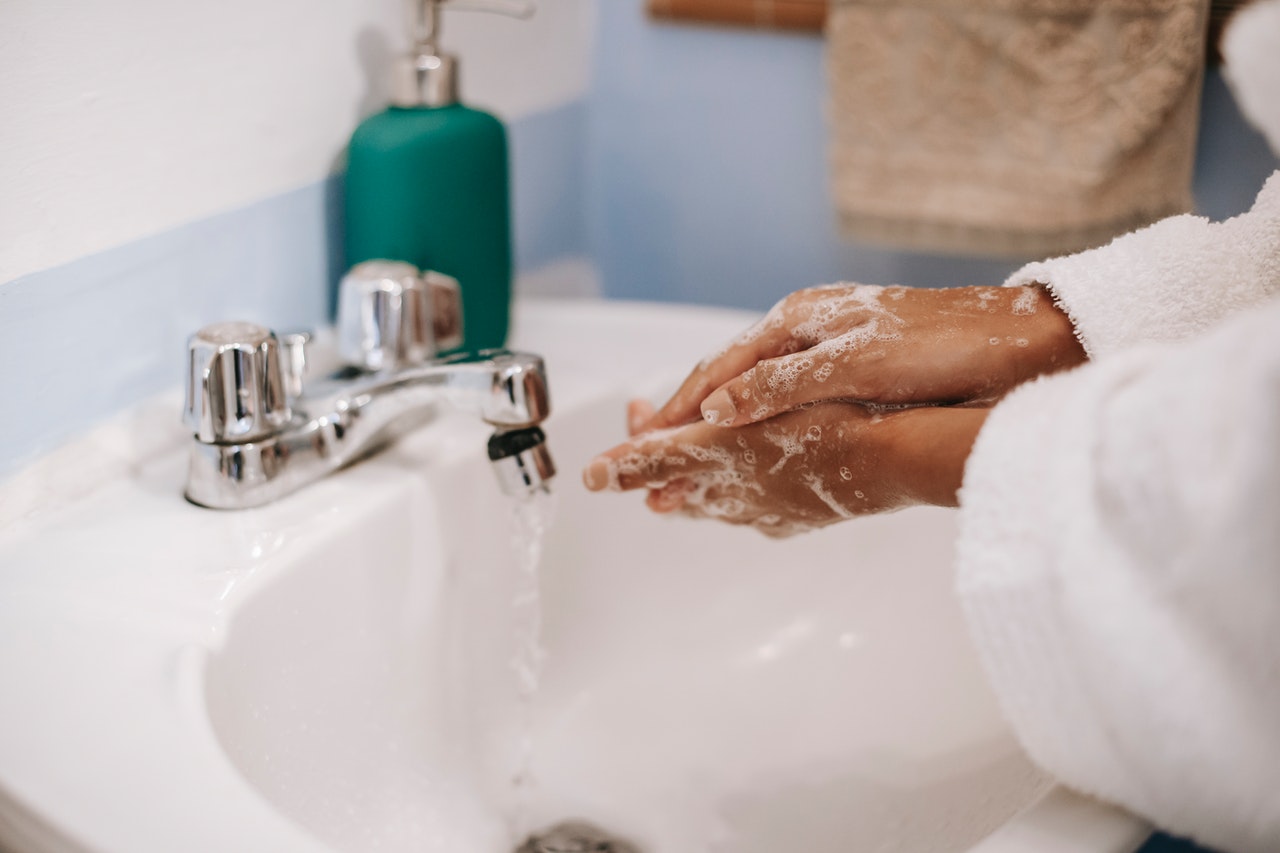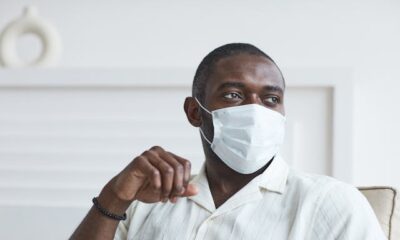Features
Chioma Ozoemelam: You Can Prevent these Diseases by Washing Your Hands

Since the beginning of the pandemic, we have been reminded to wash our hands, and have even been taught the proper way to do so. Beyond COVID-19, there are many other reasons to wash our hands. We can prevent a lot of illnesses by just washing our hands.
As our hands come in contact with various people, animals, foods, and surfaces, they pick up thousands of germs, bacteria, and viruses that can make you sick if they enter your body. Washing your hands has the power to minimise or even eliminate the risk of getting sick for you and those around you. The following illnesses are just a few of the ones that you can prevent by simply washing your hands.
Pink eye
When your eyes get sticky and super itchy, and have a crusty coating on them in the morning, you probably have conjunctivitis, AKA pink eye. Since people rub their eyes to alleviate the discomfort and then touch their surroundings, the virus or bacteria that cause ‘pink eye’ ends up on all sorts of surfaces where it can live for hours or even days. Children are at particular risk for infection and transmission because they like to explore and this exposes them to potentially contaminated objects.
Typhoid
A big reason to wash your hands more often is that you’re touching poop particles way more than you realise. That’s exactly how salmonella, the bacteria that causes typhoid, gets passed around. The infection spreads when bacteria pass into people’s mouths through food, water, hands, or objects contaminated with fecal matter (poop). It’s often transmitted through infected food that hasn’t been fully cooked (meat and eggs) or washed thoroughly (fruits and vegetables), and when you don’t properly wash your hands after using the bathroom or changing a baby’s diapers.
The flu
The flu can be deadly, and not just to those who are very young, very old, or immunocompromised. The 2017–2018 flu season was particularly dangerous with the CDC reporting 80,000 related deaths (including 180 children). Aside from getting the flu shot, handwashing is a key preventive measure, especially when you’re exposed to flu germs without knowing it.
Caused by a bacteria commonly found on the skin and in the noses of healthy people, staph can become life-threatening if the bacteria gets deep into your body and infects your blood, joints, and heart. Things can get particularly dangerous with an antibiotic-resistant strain of staph called MRSA. A staph infection may look like a boil or blister, or even just redness on the skin. The stubborn bacterium can live on inanimate objects, such as towels or gym equipment. If you wash your hands, you will lessen the risk of these bacteria being transmitted from person to person.
Almost all children will have an RSV infection by the time they turn two. The thing is, you will probably just think your child has a cold. But in some children, especially those born prematurely, and in people over 65 with weakened immune systems, this virus can cause breathing problems, pneumonia, bronchiolitis or worse. Like other respiratory illnesses, coughing and sneezing send infected droplets through the air and onto surfaces.
Hepatitis A
The good news: Hepatitis A doesn’t cause chronic liver disease like its cousins, B and C. The bad news: it can still make you really sick, causing gastrointestinal problems, fever, fatigue, and jaundice. In some cases, it can even cause acute liver failure and necessitate hospitalisation. You’ll likely hear about Hepatitis A outbreaks at restaurants, since this virus is often transmitted when someone hasn’t washed their hands after using the bathroom before preparing your food, according to the World Health Organization (WHO).
While viruses often cause sore throats, if a strep test determines that yours is caused by the bacteria group A Streptococcus, you’ll need antibiotics. Not only can strep throat cause discomfort and be highly contagious to others, but in some cases, it can also lead to scarlet fever, rheumatic fever and other life-threatening complications. According to the CDC, coughing, and sneezing spreads small respiratory droplets containing the bacteria. You can’t always stop someone from coughing or sneezing on you, but you can control your own handwashing habits.
Other diarrhoeal diseases
Feces (poop) from people or animals is an important source of germs like Salmonella, E. coli O157, and norovirus that cause diarrhea.
These kinds of germs can get onto hands after people use the toilet or change a diaper, but also in less obvious ways, like after handling raw meats that have invisible amounts of animal poop on them. Hand washing can prevent about 30% of diarrhoea-related sickness.
The common cold
While not as serious as these other diseases, a cold can still make you feel miserable and ruin your week. One study found that handwashing can lower your risk of catching a respiratory illness by a whopping 45 percent.
Hand-foot-and-mouth disease
If you have kids or work around them, handwashing can help prevent this uncomfortable infection caused by the coxsackievirus. Common in daycares and preschools, hand-foot-and-mouth disease (HFMD) causes sores on the mouth and throat, a rash on the hands and feet, a fever and loss of appetite. What gets you sick, exactly? Contagion particles from an infected person’s nose, mouth, blisters, and feces that get on your hands and then into your mouth. This is exactly why you should be washing your hands regularly and teaching your kids to do the same. Also encourage them to keep their hands out of their mouths, while you’re at it.
Mononucleosis
You probably know it as “the kissing disease,” but mono, and the Epstein-Barr virus that causes it, is not only transmitted through kissing. Saliva is the main culprit, so objects that an infected person has sneezed on, coughed on, or touched could subsequently infect you should. Sharing drinks or utensils is also a common way to spread this. If you do come down with mono, you’ll experience extreme fatigue, high fever, body aches, a very sore throat, and an enlarged spleen. Symptoms usually last between two and four weeks but sometimes longer.
Cytomegalovirus
Here’s another reason to be vigilant about handwashing if you’re pregnant. Good hygiene can prevent the transmission of this virus in the herpes family that can cause serious harm to your unborn child, including hearing and vision loss, intellectual disability, and even death.
***
Photo by Sora Shimazaki from Pexels


















